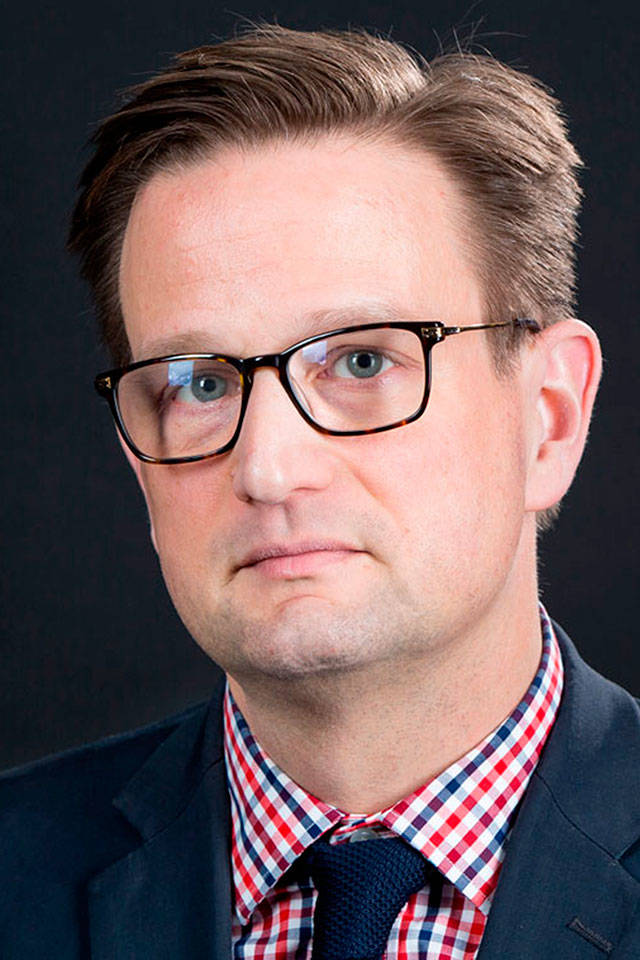A North Carolina man walks into a popular Washington, D.C. pizzeria and opens fire, telling police upon his inevitable arrest that he came to “self-investigate” a widely debunked conspiracy theory involving former Democratic presidential candidate Hillary Clinton.
In Hollywood, actress and model Jenny McCarthy and others wage a campaign against mandatory vaccinations for children, despite mountains of evidence showing they’re the key to preventing debilitating childhood diseases.
At the dinner table, your loudmouthed uncle holds forth on the events of the day, insisting he’s right and refusing to accept counter-arguments, even as he mangles facts and disregards clear truths.
Separately, these are amusing — and maybe a little disturbing, anecdotes.
But taken together, they’re part of “the death of expertise,” a stubborn insistence by the ignoramuses in our midst that everyone is as smart as everyone else; that expert opinion is meaningless and that any attempt to dismiss such claims is just “elitism.”
Tom Nichols, a former staffer to the late Pennsylvania U.S. Sen. John Heinz, and a professor of national security affairs at the U.S. Naval War College in Newport, R.I., stirred the pot of debate this summer with his new book, sensibly titled, “The Death of Expertise: The campaign against established knowledge and why it matters.”
Despite having access to more information than ever before, Americans are not only getting dumber, they’re also proud of their ignorance and can’t be moved off their opinions — no matter how effective the counter-argument with which they’re presented.
“The bigger problem is we’re proud of not knowing things,” Nichols writes. “Americans have reached a point where ignorance, especially of any public policy issue, is an actual virtue.”
He lays blame for this phenomenon in a couple of places.
Among them, the fever swamp of the Internet where “confirmation bias” reigns supreme, the galaxy of “news” sources that exist to reaffirm and stoke those prejudices, and on college and university campuses, where students become “clients” to be coddled rather than challenged.
Of course, there’s always been a strain of “know-nothingism,” in our politics. The difference now is that when presented with facts proving him wrong, your drunk Uncle Harry will dismiss contradictory evidence as “fake news” and “alternative facts” and go blithely on his way.
But it’s not “that people don’t trust experts or eggheads,” Nichols said in an interview.
Nope, it’s worse than that: “It’s that they have actually come to believe that they’re smarter than those experts.”
“Increasingly, laypeople challenge experts by trying to explain their own subject back to them,” he continued. “‘Oh, you’re an expert on Russia? Well, let me explain Russia back to you.’ This is not skepticism, it is narcissism.”
And in case you’re inclined to dismiss that argument out of hand, think for a moment how many times you’ve self-diagnosed a malady on WebMD and then quibbled with your family doctor over what actually ails you.
That’s the kind of narcissism that Nichols describes.
The “death of expertise” trend reached its absolute apogee in 2016 when billionaire Donald Trump, who pushed the debunked “birther” conspiracy involving President Barack Obama, won the White House.
Trump, who has been caught in seemingly countless fibs and fabrications since, screams “fake news” at the slightest criticism.
And he routinely undercuts the credibility of government institutions, as in the case of his ongoing fight with the intelligence community over Russian meddling in the 2016 election.
Trump’s bleating about “fake news” is dangerous because “it makes news the vessel for partisan politics rather than a presentation of ideas or facts. We now distrust the politicians, and the sources that check on the politicians,” Nichols says.
So where does that leave us? Are we just doomed to get dumber and dumber until the flow chart of human intelligence looks like the “Ascent of Man” drawn in reverse?
Unfortunately, according to Nichols, the answer is “Probably, yeah” (and I’m paraphrasing here).
“My concern is that this won’t end until a populist fad like anti-vaccines cause a disaster. Diplomacy will come back as a skill when we face war — or are in one,” he said. “We might start consulting economists during the next depression. Populism always drives itself into the ditch, and experts always have to fix it. It’s one of the reasons people resent experts; we’re the people who generally have to repair the damage on the morning after.”
Note to self: Stock up on both canned goods and economists in the event of the apocalypse.
An award-winning political journalist, Micek is the Opinion Editor and Political Columnist for PennLive/The Patriot-News in Harrisburg, Pa. Readers may follow him on Twitter @ByJohnLMicek and email him at jmicek@pennlive.com.



